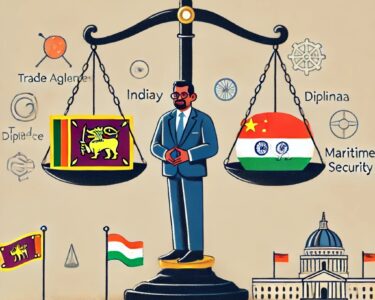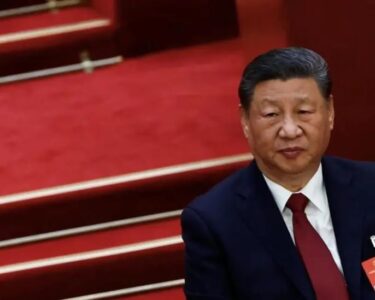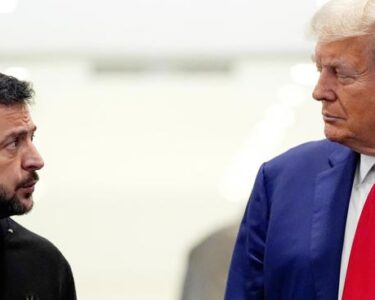As Foreign Minister Ali Sabry once again summoned the Canadian envoy to express Sri Lanka’s deep disappointment with Canada’s support for Sri Lankan separatist groups, he likely also had to acknowledge Ottawa’s continued ban on the LTTE as a terrorist organization.

This diplomatic interaction comes at a time of heightened tension, reminiscent of recent clashes in the United Kingdom where police were caught between anti-immigration and anti-racist groups. In a similar vein, a lone Royal Canadian Mounted Police officer was seen standing between two opposing Sri Lankan-Canadian factions in Brampton, Canada.
The timing of these events coincided with the Canadian government’s extension of the LTTE ban and the Brampton City Council’s controversial decision to lay the foundation for a monument commemorating what it calls the “Tamil Genocide.” The Sri Lankan government has repeatedly protested to Ottawa, arguing that the proposed monument is offensive and detrimental to bilateral relations. They contend that it exacerbates divisions within the Sri Lankan-Canadian community and hinders reconciliation efforts in Sri Lanka, following the LTTE’s defeat in 2009.
The situation escalated when a group of Sri Lankan-Canadians arrived in Brampton, some waving flags resembling the banned LTTE emblem, as a bulldozer dispatched by the city’s mayor, Patrick Brown, prepared to break ground for the monument. Another group of Sri Lankan-Canadians also gathered to protest, accusing Mayor Brown of being a “terrorism denier” and prioritizing votes over unity and harmony within the community.
“Tamil Genocide”
The Canadian government, led by Prime Minister Justin Trudeau, finds itself in a difficult position. While Trudeau has made references to the “Tamil Genocide” in what some see as an attempt to appeal to specific voter bases amid declining poll numbers, his government has not officially recognized such a genocide in Sri Lanka. This ambiguity is compounded by Brampton’s decision to erect the monument, creating a complex and divisive situation.
Canada’s handling of this issue has drawn criticism not only from Sri Lanka but also from other countries. India has accused Canada of being lenient toward foreign terrorist groups on its soil, and Israel has criticized Canada for allegedly turning a blind eye to state terrorism in Occupied Palestine. Unlike the Sri Lankan asylum seekers in Brampton, there are no Palestinian refugees in the city, which raises questions about Mayor Brown’s motivations and consistency in his humanitarian concerns.
In this tangled scenario, Canada is navigating a delicate balance between domestic political pressures and international diplomatic relations. The Brampton monument controversy illustrates the challenges of managing these competing interests while striving to maintain good bilateral ties and social cohesion within the Canadian mosaic.







